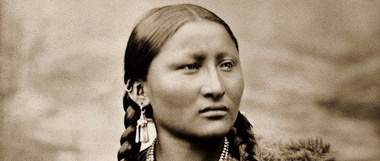Why do we often ponder the significance of Indigenous Messengers of God? What weight does their existence bear in the broader tapestry of spiritual thought? The Bahá’í Faith, a diverse and inclusive religion, invites us to explore the importance of these Messengers — unique individuals who arise in various cultural contexts to guide humanity. This exploration is not merely an academic exercise but a profound inquiry into the universal and transcendent nature of divine communication through diverse cultural lenses.
Indigenous spirituality is often characterized by a deep connection to the earth, ancestors, and the cosmos. In this light, the role of Indigenous Messengers of God becomes not only relevant but transformative. They encapsulate unique wisdom that embodies the convergence of spirituality and cultural heritage. The Bahá’í teachings acknowledge that God, in His infinite mercy, has sent forth Messengers to every people across epochs, each possessing qualities that resonate with distinct sociocultural contexts.
Understanding the Role of Indigenous Messengers
Indigenous Messengers are not mere proponents of traditional beliefs; they embody profound spiritual revelations, reflecting the divine will in their specific contexts. Their teachings often provide insights into ethical living, justice, and the sanctity of creation. The Bahá’í Faith emphasizes that spiritual truths are universal, yet they manifest diversely according to the audience. This principle affirms that Indigenous Messengers hold critical positions in guiding their communities toward unity and progress.
One may encounter the challenge of reconciling the apparent duality between established religious doctrines and Indigenous spiritual perspectives. How can these seemingly divergent teachings coalesce into a harmonious understanding? The answer lies in the Bahá’í concept of progressive revelation, which posits that spiritual truth unfolds progressively and can be understood in varied cultural contexts without diminishing its inherent unity. This insight is particularly pertinent when considering Indigenous Messengers who have historically faced dismissal or marginalization.
The Significance of Cultural Context in Spirituality
Every community possesses its own cultural narrative, which informs its understanding of spirituality. Indigenous Messengers speak the language of their people, employing symbols and traditions that resonate profoundly within their cultural milieu. This contextualization of spiritual truth is crucial. It fosters an environment where individuals can relate to divine teachings that echo their lived experiences and cultural heritage.
This brings to light an essential aspect of the Bahá’í teachings: recognition of the multifaceted nature of truth. It poses a challenge to the notion of absolute truths conveyed through a singular lens. Instead, it advocates for an appreciation of different perspectives and the wisdom they offer. Embracing the voices of Indigenous Messengers invites a deeper comprehension of the interconnectedness between humanity and the divine.
Ethical Living and Social Justice
In examining the teachings of Indigenous Messengers, one uncovers a consistent emphasis on ethical living and social justice. These Messengers often inspire their communities to pursue justice, equity, and harmony with nature. Such principles are central to Bahá’í teachings, where the call for justice is resounding and imperative. Is it not a universal tenet that every person, regardless of their cultural background, deserves to be heard and represented in the narrative of spiritual evolution?
Additionally, Indigenous perspectives often advocate for sustainable living and a custodial relationship with the earth. This stance resonates with the Bahá’í teachings on the importance of environmental stewardship, linking ecological responsibility to spiritual development. The challenge here lies in cultivating a dialogue between traditional ecological knowledge and contemporary environmental imperatives. By highlighting the wisdom of Indigenous Messengers, we can foster a more cohesive understanding of our obligations towards the planet and future generations.
Bridging Historical Narratives
Historically, Indigenous peoples have endured systemic challenges that have relegated their voices to the margins of the larger societal discourse. The Bahá’í teachings address this disenfranchisement by affirming the inherent dignity and worth of every individual. Engaging with the messages of Indigenous Messengers serves as a conduit to bridge historical narratives, acknowledging past injustices while fostering reconciliation and understanding. This process encourages a collective journey towards healing, unity, and progress.
It also raises a critical question: how can we actively contribute to this reconciliation? Engaging with Indigenous teachings and practices allows for a renewal of our spiritual perspectives. It requires a commitment to listening and learning from those who have historically been marginalized. Therein lies the path toward a more inclusive spiritual discourse and societal evolution.
Conclusion: The Holistic Approach
In conclusion, the significance of Indigenous Messengers of God transcends cultural specificity; they embody the universality and timelessness of divine revelation. While their teachings are deeply rooted in their cultural contexts, they resonate with the essence of Bahá’í principles — justice, unity, and the pursuit of truth. This exploration encourages us to reflect on the richness of diverse spiritual narratives and the collective responsibility we share in nurturing these voices within our global tapestry.
As we ponder the profound messages conveyed by Indigenous Messengers, we must embrace the challenge of fostering an inclusive spiritual landscape. This endeavor is not merely an academic exercise; it is a call to action, urging us to acknowledge, uplift, and integrate the diverse spiritual traditions that enrich our shared humanity. Let us embark on this journey with open hearts and minds, recognizing the pivotal role of Indigenous Messengers in advancing our understanding of divinity and our collective destiny.
